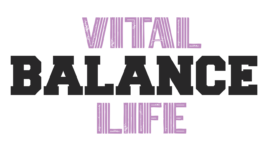The power grid is a crucial component of modern life, and it’s critical to have a backup plan in case of power outages. For businesses, this means having a backup generator to keep operations running smoothly during unexpected power cuts. However, commercial generator installation requires careful planning and consideration to ensure that your investment meets your needs. So, this write-up will inform you about everything you need to know before installing a commercial backup generator for your business.
Power Needs of Your Business
The first step in installing a commercial backup generator is to determine the power needs of your business. And for that, you need to consider the size and type of your business and the equipment you use. Next, it will help you determine the size and capacity of the generator you need to meet your power requirements.
Type of Generator
Several commercial backup generators are portable, standby, and industrial. Portable generators are small and can be moved to different locations, making them ideal for smaller businesses. Standby generators are connected to your electrical system and automatically switch on in case of a power outage. Finally, industrial generators are large and designed for heavy-duty use in extensive facilities. So, after considering all of the types of generators, you’ll be able to make the right decision.
Professional Consultation
Installing a commercial backup generator is a complex process that requires technical knowledge and expertise. Therefore, it’s essential to consult with a professional to ensure that your generator is installed correctly and meets all safety regulations. A professional will also be able to help you choose the right generator for your needs and guide you through the installation process.
Cost and Maintenance Requirements
Commercial backup generators are a significant investment, and it’s essential to consider the cost and maintenance requirements when deciding. Make sure to factor the cost of installation, maintenance, and fuel into your budget. Additionally, it’s essential to have a plan in place for regular maintenance to keep your generator running smoothly and to ensure that it’s ready when you need it most.
Fuel Options
It is necessary to check your fuel options when installing a commercial backup generator. The most common fuel options include gasoline, propane, and diesel. Go through the essential factors like the cost and availability of fuel in your area and the environmental impact of each fuel type. Consider a generator that runs on multiple fuels to ensure that you have a backup plan in case of fuel shortages.
Final Words
Installing a commercial backup generator is an essential decision for any business and requires careful planning and consideration. Determine your power needs, consider the type of generator that is best suited for your operation, consult industrial electrical contractors near you, consider the cost and maintenance requirements, and consider your fuel options. With these tips in mind, you’ll be able to choose and install a commercial backup generator that meets your specific needs and keeps your business running smoothly, even during power outages.







